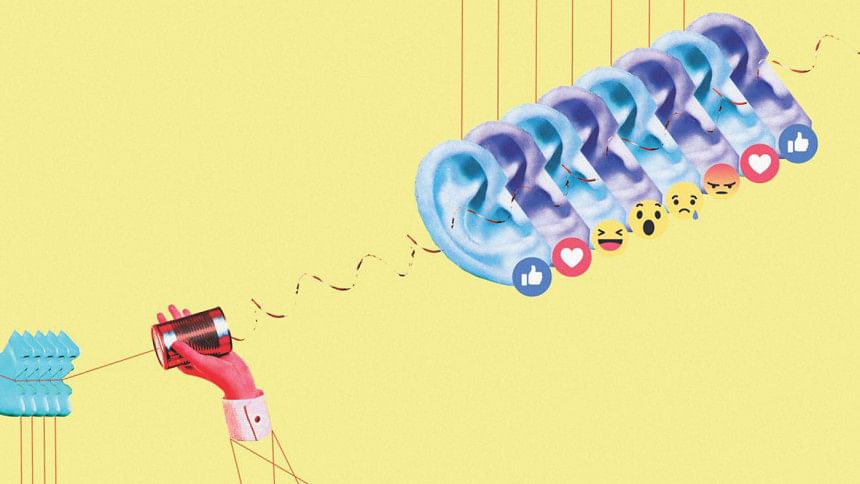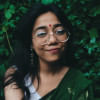In the ‘free’ digital space, how does our bigotry persevere?

The internet and its cloak of anonymity seemingly avails us with freedom on all counts. What people see of one's life on their social media profile/s, for instance, is what they want people to see. Individuals may not have much control over what happens to the parts of themselves they put out there, but they can endlessly tailor which parts do get out there and in what context. This is why it is quite difficult to unknowingly commit internet faux pas, because you have ample opportunities to edit and rethink before you hit send/post/upload.
So when, on Mother's Day earlier this month, National Award-winning actor Chanchal Chowdhury posted a photo of himself with his mother and caught a downpour of derogatory comments from "fans" who were just now discovering that the artist belongs to a Hindu family, I doubt any of us felt shocked. Disgusted, sure. But to be at all shocked that such bigotry against people of minority groups exists is to signal one's privilege. In this case, it is not the privilege of being wealthy, but that of not being a minority in Bangladesh, that keeps one sheltered (read: ignorant) from such widely-held perceptions.
But the internet is such a revolutionary "place", and it has changed the world (for mostly the better) by making everything so easy. Above all, it is modern, dynamic, and inclusive. So how can the backward values and traits of our culture survive in the vast openness (and open-mindedness) of the digital space?
The internet is not just a shiny new toy anymore that only serves the purpose of "ruining the youth". It is a necessity in almost every stratum of our society—one that helps sustain livelihoods. But it is also quickly becoming our most accessible source of validation. Thanks to the algorithmic abilities of the internet to show us only what we want to see, this so-called free space, too, becomes as segmented as our physical society.
If Chanchal Chowdhury had been, say, walking down some Dhaka street with his mother, no one would have gone up to him, declared their love for his work, and in the same breath berated his or his mother's religious background.
But it just so happens that the freeness of the internet enables one to express their bigotry as well. And those who live in the public eye or become part of important news stories have to bear the brunt of this downside. How else would two police officers have had the audacity, in another instance, to circulate distastefully doctored photos of Shipra Debnath—a crew member of Maj (retd.) Sinha Md Rashed Khan, who was killed during a police firing last July—if not in an attempt of character assassination? Sexual abuse and violence against women is certainly a more openly practised form of bigotry than our religious majority's prejudice against those of other religions, so it is also more commonplace in the digital space.
Sadly, the "Rules of The Internet" is only a pop culture reference. In reality, people do not practise "netiquette" when they make comments online, especially about the lives and choices of other people—and especially not in our part of the world.
One would think that the Digital Security Act 2018 (DSA) could, to an extent, be used for protecting individuals online from malicious actions and comments. Unfortunately, the law that was supposedly put into place so that general members of the public could be protected online has not really worked out in their favour, largely due to its strategic implementation. The Act has been accused of being vaguely/widely defined and arbitrarily implemented, often to favour those who are financially or politically influential. This unclear nature of the Act is what allows government bodies and law enforcement agencies to remove or block any published information which may threaten "digital security". There is much too much emphasis in it to protect and encourage nationalism, and not nearly enough to shield individual and vulnerable members of the public from harassment online. Otherwise, there would be fewer stories related to the DSA such as those of writer Mushtaq Ahmed (who died in custody in February), cartoonist Ahmed Kabir Kishore, and of Md Emon (a 14-year-old who was arrested last year in June for "defaming" the Prime Minister in a Facebook post).
A history of instances when the DSA was implemented will show us that it can, indeed, be used swiftly—but only to protect political heavyweights from public criticism, and not to uphold the democratic values of secularism, equality, freedom of speech, etc.
If only there was a quick fix for the gender-, religion-, and ethnicity-based biases of people. What many fail to realise is that the effects of cyberbullying of individuals (no matter how famous or affluent they are) do not just exist within the internet. Sure, some may be able to move on from derogatory comments online and continue to live their private lives normally. But, for most people, it is not so easy to disregard the offensiveness of strangers online and can cause serious harm to their well-being.
It has been proven time and again how prompt the authorities are capable of being when dealing with individuals who apparently threaten the digital security of influential people. Therefore, it would be justified to think that the same level of protection can be extended to protect regular citizens of the country from perhaps more potent threats of bigotry, prejudice, and sexual harassment. Hopefully, one is not wrong to think that public security should be the main subtext of digital security.
Afia Jahin is a member of the Editorial Team at The Daily Star.

 For all latest news, follow The Daily Star's Google News channel.
For all latest news, follow The Daily Star's Google News channel. 



Comments